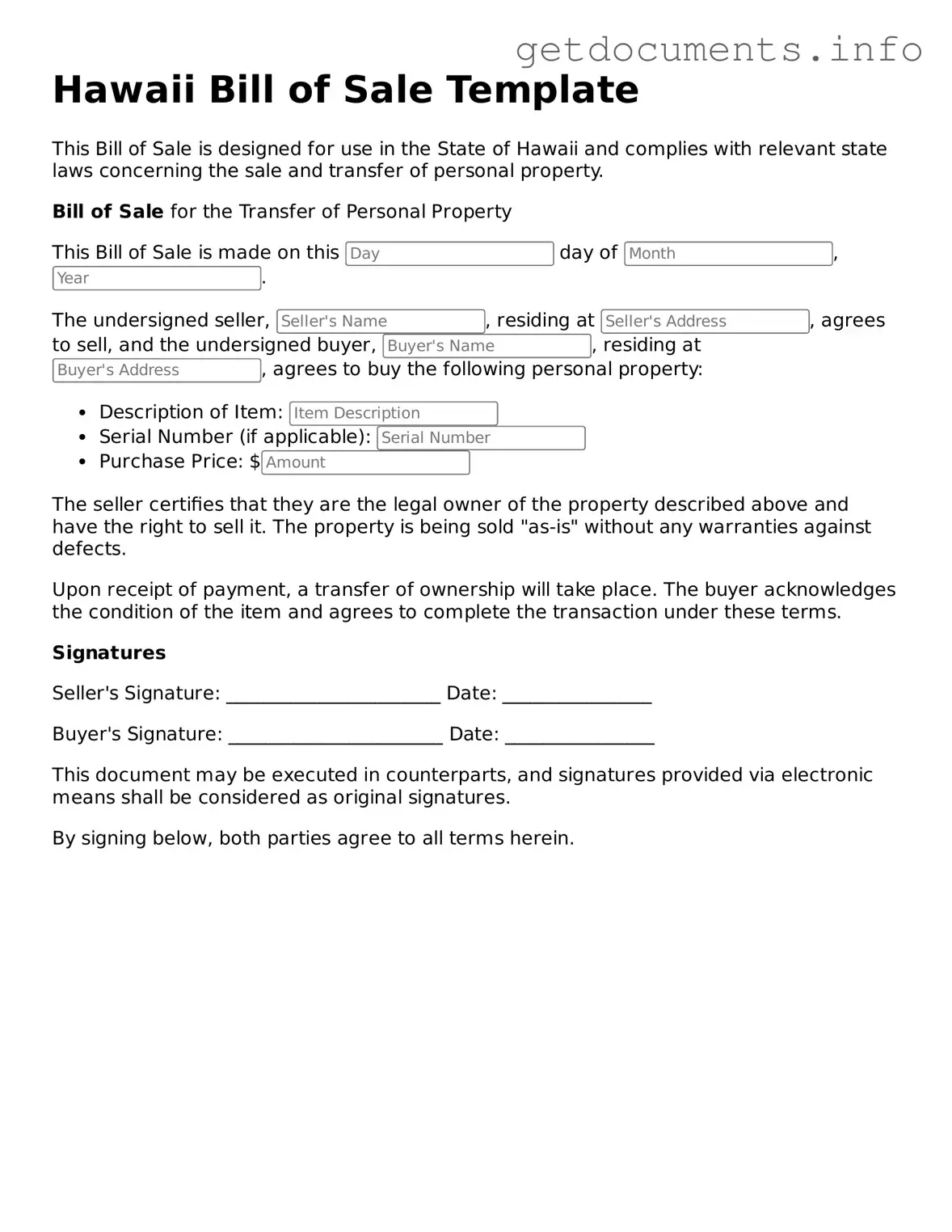Free Bill of Sale Template for Hawaii
A Hawaii Bill of Sale is a legal document that records the transfer of ownership of personal property from one person to another. This form serves as proof of the transaction and outlines important details such as the buyer, seller, and description of the item sold. Understanding how to properly complete this document is essential for ensuring a smooth transfer process.
Ready to fill out your Hawaii Bill of Sale? Click the button below to get started!
Access Bill of Sale Editor

Free Bill of Sale Template for Hawaii
Access Bill of Sale Editor
Got places to be? Complete the form fast
Fill out Bill of Sale online and avoid printing or scanning.
Access Bill of Sale Editor
or
⇩ PDF File
